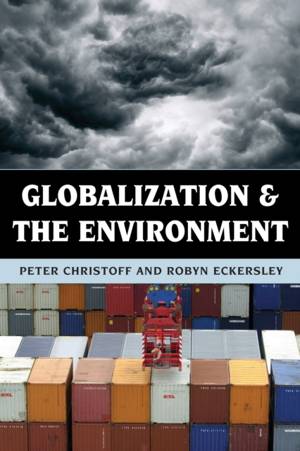
- Afhalen na 1 uur in een winkel met voorraad
- Gratis thuislevering in België vanaf € 30
- Ruim aanbod met 7 miljoen producten
- Afhalen na 1 uur in een winkel met voorraad
- Gratis thuislevering in België vanaf € 30
- Ruim aanbod met 7 miljoen producten
Zoeken
Omschrijving
This book by two leading scholars offers the first systematic analysis of the relationship between globalization and the environment from the early Modern period to the present. Peter Christoff and Robyn Eckersley disentangle and clarify the relationship between the processes of modernization, globalization, and global environmental change. Through a rich set of case studies, including a special focus on the challenging global problems of climate change and biodiversity loss, this powerful book will help readers grasp the systemic causes of global environmental degradation as well as the myriad opportunities for reform of global environmental governance.
Specificaties
Betrokkenen
- Auteur(s):
- Uitgeverij:
Inhoud
- Aantal bladzijden:
- 268
- Taal:
- Engels
- Reeks:
Eigenschappen
- Productcode (EAN):
- 9780742556591
- Verschijningsdatum:
- 8/08/2013
- Uitvoering:
- Paperback
- Formaat:
- Trade paperback (VS)
- Afmetingen:
- 152 mm x 226 mm
- Gewicht:
- 408 g

Alleen bij Standaard Boekhandel
+ 134 punten op je klantenkaart van Standaard Boekhandel
Beoordelingen
We publiceren alleen reviews die voldoen aan de voorwaarden voor reviews. Bekijk onze voorwaarden voor reviews.








